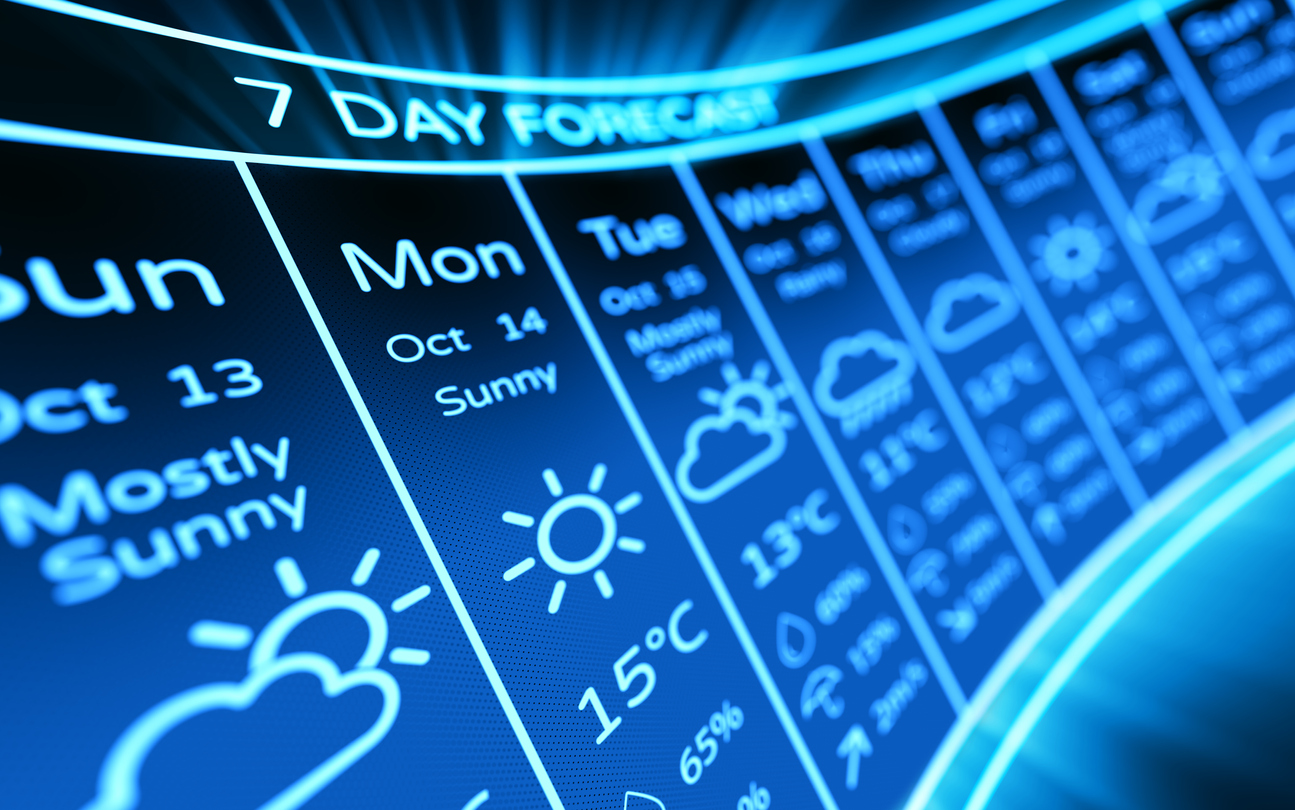Although weather forecast accuracy has significantly improved over the years, questions remain about its reliability, particularly for long-term predictions. Weather forecasting has evolved from simple observations to sophisticated models that can predict weather conditions with remarkable precision. However, various factors influence the accuracy of these forecasts, making it essential to understand their strengths and limitations.
Understanding Weather Forecast Accuracy
Weather forecast accuracy has seen remarkable advancements, especially in the last few decades. The ability to predict weather conditions accurately has saved lives, facilitated disaster management and aided in various sectors, including agriculture, aviation, and transportation. Weather forecasts for the current day or the next day are usually very accurate. However, as the forecast period extends to five days or ten days, the certainty diminishes.
The Role of Weather Models in Forecasting
Weather models are the backbone of modern weather forecasting. These models simulate the atmosphere and predict future weather patterns based on current data. Meteorologists input observations from satellites, weather stations, and other sources into these models to generate forecasts. The Met Office and other meteorological organisations, such as the team here at AccuGrit, utilise these models to provide temperature forecasts, rain predictions, and warnings about severe weather conditions.
Factors Influencing Forecast Accuracy
Forecast accuracy depends on several factors:
- Data Quality: High-quality data is crucial for accurate predictions. Inaccurate or incomplete data can lead to erroneous forecasts.
- Atmospheric Complexity: The atmosphere is a highly complex system. Minor variations in initial conditions can lead to significant differences in weather outcomes, a phenomenon known as the butterfly effect.
- Technological Advancements: Continuous improvements in technology, such as more powerful supercomputers and advanced algorithms, have enhanced the accuracy of weather predictions.
Short-Term vs Long-Term Forecasts
Short-term forecasts, such as the one-day or five-day forecast, are generally more reliable. For instance, predicting the weather conditions for the next day or even the next four days can be done with a high degree of accuracy. This is due to the forecast period’s close proximity to the current observations and data.
On the other hand, long-term forecasts, such as those predicting weather conditions ten days in advance, are less reliable. The atmosphere’s inherent unpredictability makes it challenging to forecast accurate weather conditions for extended periods. For example, historical data and past weather patterns might suggest certain trends, but unexpected changes in the atmosphere can lead to significant deviations.

Importance of Accurate Weather Forecasts
Accurate weather forecasts are critical for several reasons:
- Safety and Disaster Management: Early warnings about severe weather, such as floods, snow or high temperatures, can save lives and reduce property damage.
- Agriculture: Farmers rely on accurate weather predictions to plan their activities, such as planting and harvesting crops.
- Aviation and Transportation: Accurate forecasts help in planning flights, shipping routes, and other transportation logistics to avoid adverse weather conditions.
- Daily Life: From planning outdoor events to choosing appropriate clothing, weather forecasts play an essential role in our daily decision-making.
Challenges in Weather Prediction
Despite the advancements, weather prediction still faces several challenges:
- Rapidly Changing Weather: Weather conditions can change rapidly, making it difficult to predict sudden changes accurately.
- Localised Weather Events: Predicting weather for a specific location can be more challenging than broader forecasts. For instance, rain predictions can vary significantly over short distances.
- Global Climate Patterns: Large-scale climate patterns, such as El Niño and La Niña, can impact weather predictions on a global scale.
The Future of Weather Forecasting
The future of weather forecasting looks promising, with continuous improvements in forecasting techniques and technology. The integration of artificial intelligence and machine learning into weather models is expected to enhance forecast accuracy further. Moreover, advancements in satellite technology will provide more detailed and accurate data for meteorologists to analyse.
Weather Forecast Reliability
While weather forecasts have become more reliable, they are not infallible. Understanding the factors that influence forecast accuracy and the limitations of long-term forecasts can help individuals and businesses make better-informed decisions. Always consider having contingency plans in place and stay updated with the latest weather information from reliable sources.
By comprehending the intricacies of weather forecasting and its accuracy, we can better appreciate the efforts of meteorologists and the technology that helps predict the weather conditions we encounter daily.
If you need reliable and accurate weather forecasting services, especially for critical decisions and planning, contact our team at AccuGrit. We provide comprehensive weather forecasts tailored to your specific needs, utilising the latest technology and data. Don’t leave your plans to chance; contact us today to ensure you are prepared for whatever weather comes your way.

